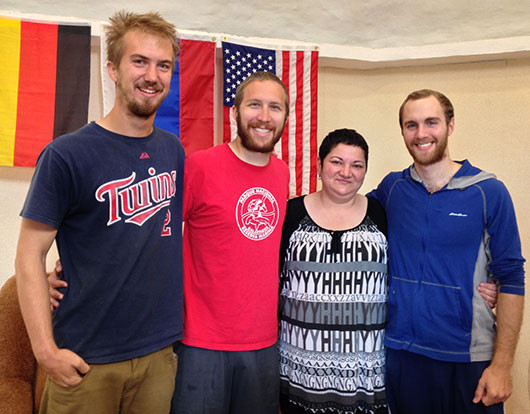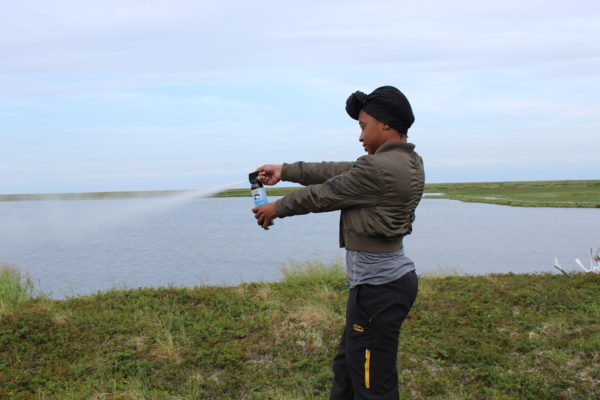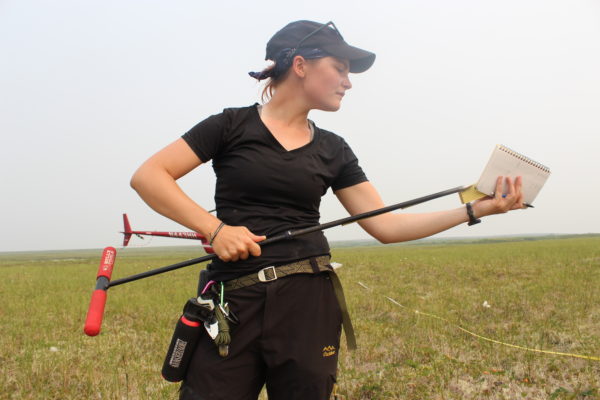Having lived in Siberia for seven weeks now, I no longer feel like a visitor at the Northeast Science Station. Orbita and the station feel more like home, making our Russian colleagues and friends feel more like family. As you can imagine, our extended stay has made for quite a productive summer, but in my opinion, the real perk is the quality time we’ve been able to spend with the people here. So for this blog post, I’d like to focus on a few moments I’ve shared with our Russian friends; moments I feel only could have been possible as a returning student staying for two months.
“What’s for dinner?”
“There’s liver in it, you’re not going to like it” ;P
This is a fairly common back-and-forth joke that Nastya, Nikita’s wife, likes to play whenever something especially tasty comes out for dinner or dessert. A matter of fact, about a week ago, our cook Leana made us her homemade moose balls, but not until the next morning did Nastya and Nikita tell us what really was in those moose balls… yup, you guessed it…it was liver!! Knowing Sam, Seth, and I were disgusted with the idea of eating moose liver, Nastya and Nikita thought it was hilarious, laughing to themselves as we gulfed down our dinner the night before. It’s a nice example of the humor shared among all of us during our down time, and especially around meals, which is normally the only time we all share together.
“You’re not supposed to mix all of the food together!” -my English translation
“Leana, I can’t understand you when you’re yelling at me in Russian!”
While laughing and rolling her eyes, Leana shares her feelings about my own twist to her cooking. Leana’s a fantastic cook, the best the station has ever had from what I hear, and makes moose and fish like no other,… but I like a little mix in my dishes…throw some corn in my soup, put a little slaw in there, and lastly add a bit of the moose. The reason why Leana laughs at me is because here she spends hours preparing these nice dishes with a specific order to how you eat them, and then as soon as they come out, she watches me throw it all together. I’m sure she’s thinking: this must be an American thing. While our large group was here, Leana was a bit shyer; perhaps because it’s intimidating to interact with a large group of foreigners, all speaking loudly in English. But as soon as it was just a few of us left, she opened right up and the jokes started flowing. I have many found memories of staying up late playing backgammon with Leana from Polaris 2013; I’m glad our relationship has carried through. I think of Leana almost like our Russian “mother:” she always makes sure we don’t head out to the field without a lunch, often puts out our favorite snacks for late night lab work, and looks out for us with a watchful eye.

Seth Spawn, Sam Dunn, Leana, and Craig Connolly.
“You’re thinking of a Finish sauna, this is a real Russian sauna” and it’s actually pronounced sahna (think Bahston ahccent)
After a tiresome day of work, Nikita and his friend Sasha came up from the barge asking Sam, Seth, and I if we wanted to hit up the sauna and go for a dip in the river. It was then that I leaned what a true Russian sauna meant. With a combination of extremely hot and moderately steamy conditions, we waited until we sweat out our last bullets, then jumped (cautiously of course) into the Kolyma to get that instant, ice-cold, chill down your spine feeling—one you can only get from swimming in an arctic river. It was a refreshing break and a nice opportunity to learn about the proper, Russian style, of hitting the sauna.
“How about 10am in the Orbita lab?”
A typical morning meeting with Anya, the station’s Russian analytical chemist. One of the most rewarding experiences I’ve had is to have been able to work with Anya. Normally very shy around new students, Anya is a wonderful source of knowledge when it comes to running the instruments in the labs, and for proper methods of analytical water chemistry. To work closely with Anya is a right of passage for a returning student. While she takes a lot of care with her instruments, lab space, and glassware, she expects the same from you, which is not always easy as a first year student still learning the ropes. Anya’s time teaching me her methods for proper water extractions, how best to use the Shimadzu dissolved organic carbon analyzer, and overall advice for my own experiments have greatly improved my techniques and taught me new analytical skills.
In the midst of our last week here in Cherskiy, long days in the field and late nights in the lab have blinded us from the fact that we leave in only a few more days. I only now realize that I have to say goodbye to our new home very soon. Nonetheless, it’ll be a time of joy for the experiences had and memories made, and hopefully not a true goodbye, for I know all of us would like to see our Russian friends again soon.




Comment(1)-
Claire says
August 14, 2014 at 5:00 amGreat post, Craig! Being there in Cherskiy with a small group is completely different than with the core group. Glad you’re getting the unique experience!